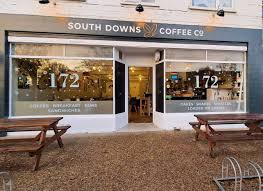The Growing Coffee Culture in the UK: Trends and Insights

Introduction to Coffee Culture in the UK
Coffee has become more than just a beverage; it’s a lifestyle and a cultural phenomenon that resonates across the United Kingdom. Over recent years, the demand for specialty coffee has surged, leading to an explosion of cafes and artisanal coffee roasters. Understanding this trend is essential, as it reflects changing consumer preferences and the evolving landscape of the UK’s food and beverage industry.
The Current State of Coffee Consumption
According to the British Coffee Association, the UK coffee market has seen a consistent annual growth rate of approximately 10% over the past five years. In 2022, over 95 million cups of coffee were consumed daily, highlighting the beverage’s central role in British life. This growth is driven by an increasing interest in gourmet coffee education, as more consumers prefer quality and sustainability over convenience.
Trends Shaping the Coffee Scene
Several key trends are contributing to the evolution of coffee culture in the UK:
- Specialty Coffee Shops: There has been a notable rise in independent coffee shops that focus on sourcing high-quality beans and crafting unique blends. These establishments often engage with customers through tasting sessions and educational workshops.
- Home Brewing: The pandemic has shifted many coffee lovers to embrace home brewing equipment, with sales of espresso machines and pour-over kits skyrocketing. Online communities have flourished, sharing recipes and tips for perfecting home brews.
- Sustainability Practices: Consumers are increasingly concerned about the environmental impact of coffee production. Many coffee brands are adopting transparent sourcing practices and offering fair trade or ethically sourced options.
Impact of Events on Coffee Enthusiasm
Events such as the UK Coffee Week and the Coffee Festival London, which showcase local roasters, baristas, and brewing techniques, are pivotal in fostering community amongst coffee enthusiasts. These events not only celebrate coffee but also contribute to charitable causes, with proceeds often going to support coffee-growing communities around the world.
Conclusion and Future Outlook
The significance of coffee in the UK extends beyond mere consumption; it represents a social connection, a thriving economy, and a commitment to sustainability. As the coffee culture continues to expand, we can expect further innovations in brewing methods, experiences, and ethical practices. Future forecasts indicate that the UK will continue to emerge as a global leader in coffee culture, potentially establishing its place in the ranks of coffee-loving nations, such as Italy and Australia. For consumers, this means not only more caffeinated options but also the opportunity to engage with a community that genuinely cares about quality, sourcing, and sustainability.





